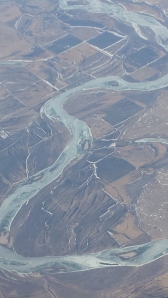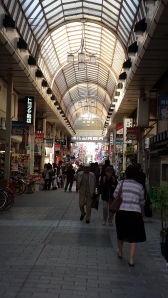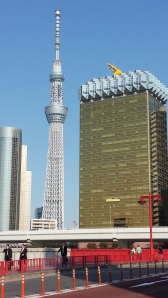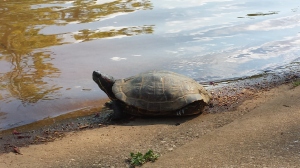Research, as most things in life, is best approached with gratitude. In this post, I’ll share a bit about what I’m grateful for, an exercise in gratitude, and some food for thought about the role of gratitude in research.
First, here is a window into what I’m feeling grateful for.
Grateful for the challenge of research
Research can provide a challenging career. While it is possible to find positions in research that are more repetitive, most positions afford many opportunities for learning about new subject matter and new methods. Each new research question provides fresh challenges to implement. And with the body of literature and informal sources available, there is always the ability to read more deeply about the work that others have done. I am grateful for the perpetual learning experiences that research has brought.
Grateful for the versatility of research
One of my favorite aspects of a career in research is the versatility. I’ve been able to work in neuropsychology, physics education, sociolinguistics, social media research, media measurement and in public health using a great variety of research methods.
Grateful for my colleagues
Over the years I’ve had the pleasure of working with people that I respect, learn from and genuinely enjoy. I’m grateful for their help, their wisdom, their curiosity, their enthusiasm, their support, their friendship, and their comforting awkwardness.
Gratitude for the research opportunities
I am grateful for the opportunity to study people. I am grateful for the people who agree to participate in research and who honestly share what is in their hearts or on their minds. Some opinions and experiences are easier to share than others. I am grateful for all of it. The qualitative work that I am currently involved with is often built on individual and group interviews that can be a powerful experience for the participant and the interviewer, and I am so grateful to the participants and the process for bringing this to fruition.
Now, let’s take a minute to Go Beyond the Gush. It is easy to get swept up in the everyday grind of research, whether because the research approval process seems unnecessarily repetitive or cumbersome, or data needs more wrangling than predicted, or the meetings seem endless and the emails, texts and phone calls seem constant, or the people working on a project are particularly difficult to corral, or the behavior that you need to observe in your research is particularly difficult to isolate, or… We can all get caught in the slog of research. But gratitude can help.
Here is an exercise:
Let’s take a minute to get very basic with this. First, think of the reasons why you enjoy your work. Then let’s take it back even further.
- Be grateful to have a topic to research or to have the ability to find one. Be grateful for the ability to be curious and to find unanswered questions.
- Be grateful to have the support to pursue this topic as a professional or as a student. Research costs time, money and many other resources.
- Be grateful to have the skills to approach the topic. Think of all of the training that provided these skills. Think of the resources that are available to you to help you learn what you need.
- Be grateful for your strength. You have the ability to tackle what comes your way.
- Be grateful for the people who must come together to make this work happen. Sometimes we get stuck thinking of one person’s habits or quirks or in finding fault with the people around us. Some groups are more cohesive than others, and each person brings a different set of skills. Take a step back from that. Let go of it for a minute and take a fresh look. First see yourself as someone with strengths and weaknesses. Then see your colleagues in this light as well. Allow yourself to forgive yourself and others.
- Be grateful for the challenges your work brings. Sometimes it seems to bring too many challenges. But those challenges are keeping you sharp. And in some way, they will offer you the opportunity to learn and grow.
- Be grateful for research participants. These are the people who make our work possible by letting us into their world in some way. That is a privilege.
What do exercises like this gain you? A few things, really. Peace of mind. A break from the stress and an opportunity to just feel grateful. Perspective. A chance to put challenges that seem constant or insurmountable into a smaller box. The opportunity to see the people around us from a fresh perspective and hear them more clearly. A better insulation against the instability that affects us all. And an opportunity to see our research in context and think more broadly about the affect it has. The work we do affects peoples’ lives, but these basic mechanisms can become lost to us when we lose perspective. With fresh perspective and gratitude, we can better see these mechanisms in action and produce work that better respects all involved. No research exists in a vacuum, and the better we can understand the role our research plays in a wider context the better stewards we can be over this tremendous privilege we’ve been granted.
Thanks for listening.

























































